


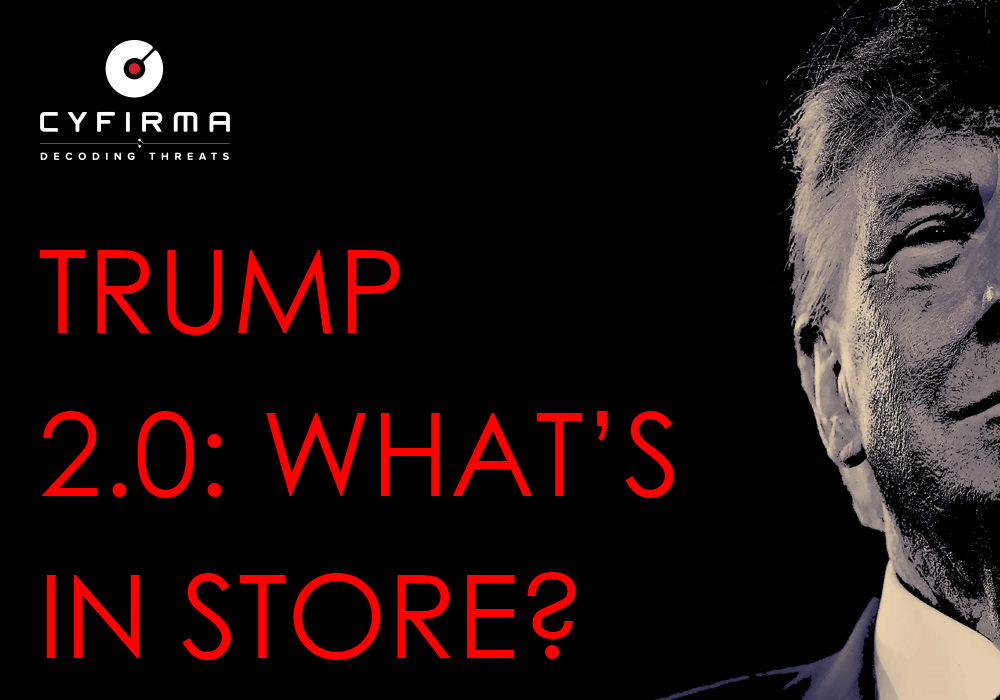
When Trump was first elected in 2016, his administration largely consisted of Reaganite Republicans and members of the security establishment who were said to be opposed to the isolationist ‘Make America Great Again’ agenda. This is decidedly not the forecast for the Trump administration 2.0, so what effect will that have on the global geopolitical landscape? This article attempts to explore what we might expect and examine the potential fallout in the cyber realm.

Some commentators speculate that he may impose protectionist measures that set off a global trade war, or effectively withdraw U.S. backing to NATO. Others wonder if Trump will be lenient to Putin, and cut off military support to Ukraine, or conversely, he might provoke Putin in a show of force that Biden’s diplomacy wouldn’t contemplate. He could attempt to coax Kim Jong Un into abandoning the North Korean nuclear weapon program, and Xi Jinping into relinquishing Taiwan, or he equally may also lose interest in both endeavours, the unpredictability of which is arguably the root of many world leaders’ concern.
Concerns may be exaggerated, but the fear is that in a second term – where he will not face re-election – Trump is less likely to pay attention to mainstream Republicans and the foreign policy establishment, drastically shifting U.S. foreign policy.
The conflict surrounding the transition has already claimed its first casualties, as it was immediately announced that two prominent figures from Trump’s first administration – former Secretary of State Mike Pompeo and former UN Ambassador Nikki Haley – will not be part of his second term, despite strong support from the party establishment.
Read below for the main foreign policy topics that Trump’s second administration will face, and their implications for cybersecurity.
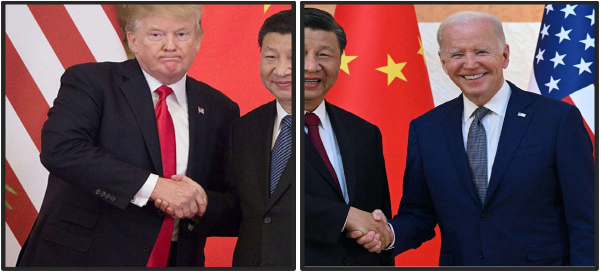
The Biden administration arguably inherited much of the hardline approach to China from Trump’s first term, and a Trump reprise will likely continue viewing China as the United States’ primary national security challenge. There will be notable changes in specific policies, however, and especially in the overall approach.
Trump announced yesterday that he would impose a 25% tariff on all goods entering the U.S. from Canada and Mexico on his first day in office unless they take action to stop drugs and migrants from crossing their borders. With a further promise of a 60%+ tariff on all Chinese imports, Trump would be moving closer to a complete decoupling of the world’s two largest economies.
Trump’s previous use of tariffs demonstrates that the above shouldn’t be considered empty threats, especially considering the past inclusion of U.S. allies (such as on steel and aluminium imported from nations like Mexico, Canada, South Korea, Japan, and the EU).
Most policymakers in Washington have not embraced the extreme strategies that Trump proposes, but there is now a consensus that trade protectionism and targeted tariffs – once unthinkable – must play a central role in the U.S. strategy toward China.
Unless Israel’s ongoing conflicts with Hamas in Gaza and Hezbollah in Lebanon are fully resolved before Trump’s inauguration – which most would consider highly unlikely – one of the most pressing foreign-policy challenges he will face is the escalating tensions in the Middle East. The president-elect has expressed his desire to end the war in Gaza, stating in August that he told Israeli Prime Minister Benjamin Netanyahu to “get your victory” because the “killing has to stop.”
It remains unclear what role the next administration would play in trying to bring the war to a close. Trump has criticized the Biden administration’s call for a cease-fire, arguing that it would stymie Israel and allow Hamas to regroup.
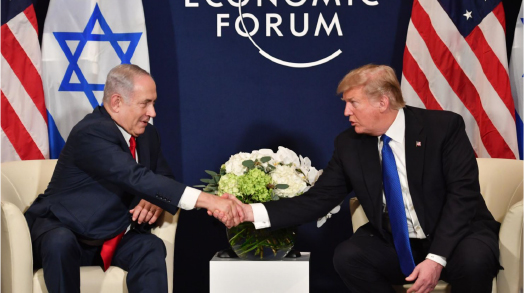
During his first term, Trump rhetorically supported a two-state solution to the Israeli-Palestinian conflict, while also delivering a series of diplomatic wins for Israel (such as moving the U.S. Embassy to Jerusalem, cutting funding to the U.N. agency for Palestinian refugees, and recognizing Israeli sovereignty over the Golan Heights). He also asserted that Israeli settlements in the West Bank did not violate international law.
Trump has claimed that he has “fought for Israel like no president ever before,” with his administration’s role in brokering the Abraham Accords – diplomatic agreements between Israel and several Arab states – considered a major foreign-policy success, which the Biden administration has continued. However, in recent months, his tone toward Israel has been more critical, as he warned in April that the country was “losing the PR war” in Gaza.
As Trump enters his second term, the Middle East remains inflamed by tensions, with Israel and Iran directly exchanging fire for the first time this year. While the Biden administration has worked to de-escalate these tensions, Trump has shown less restraint, stating in October that Israel should “hit the nuclear first and worry about the rest later.”
In September, Trump expressed openness to negotiating a new deal with Iran to prevent its development of nuclear weapons, emphasizing the urgency of such an agreement without offering specific details on what negotiations might entail.
Though Trump sought to reduce U.S. military involvement in Iraq and Afghanistan, he has not ruled out using military force to achieve clear objectives. This could include preventing Iran from acquiring nuclear weapons, a goal for which military action may be seen as the only viable option. Additionally, the U.S. intelligence community has warned that Iran has plotted to assassinate Trump and will likely continue these efforts beyond Election Day, adding a personal dimension to his foreign policy stance.
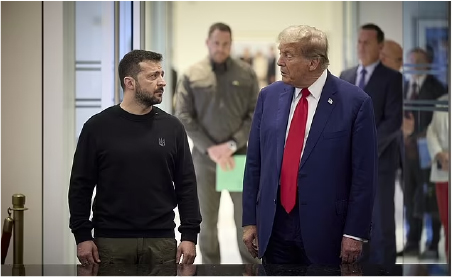
Trump has criticized U.S. funding for Ukraine’s war effort, urging Europe to take on more responsibility for supporting Kyiv. He referred to Ukrainian President Volodymyr Zelensky as “the greatest salesman on Earth” for securing so much financial support from the Biden administration, though he also expressed sympathy for the Ukrainian people, saying, “That doesn’t mean I don’t want to help, because I feel very badly for those people.” Despite this, Trump has questioned whether Ukraine has the real capacity to defeat Russia.
Trump has claimed that he could negotiate an end to the Russia-Ukraine war in just 24 hours, and intends to accomplish this before his inauguration in January, but specifics on how he plans to execute this are scarce. In July 2023, Trump suggested he would pressure Zelensky and Putin to negotiate by threatening to withdraw U.S. aid, and warning Putin that Washington will significantly increase support for Kyiv if a deal isn’t reached.
One thing is arguably very clear: China will be a major focus.
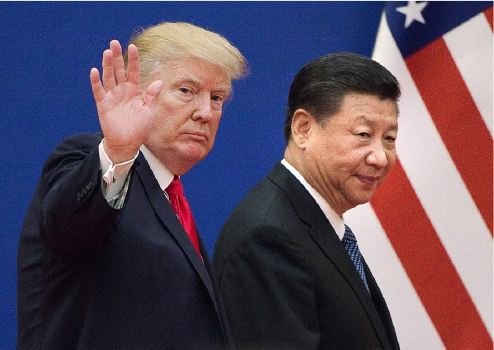
As cybersecurity is a bipartisan issue among US lawmakers, so is scepticism toward the government in Beijing. After Trump has spent months promising to turbocharge a trade war with China, Americans should expect cyber espionage to continue. Chinese hackers are recently suspected to have targeted global telecommunication technology for the purpose of espionage, prepositioning critical networks in anticipation of a conflict. This has been extensively covered in our research – see activity by Volt Typhoon as an example of a likely Chinese state-backed APT, a group active for at least two years, and responsible for attacks on multiple industries across a variety of sectors.
This year, the Five Eyes issued another warning both against Volt Typhoon and the use of AI in Chinese hacking campaigns. Chinese hackers have been mainly focusing on the defense industrial base, successfully compromising the networks of contractors to the Pentagon’s U.S. Transportation Command 20 times in a single year, while many other incursions have likely remained undetected. Some researchers are also worried China is trying to position itself to paralyze U.S. critical infrastructure in case of an eruption of conflict over the issue of Taiwanese or Philippine waters.
Businesses in critical infrastructure sectors, which are often targeted by hackers, would benefit from bolstering their cybersecurity, including measures such as safe harbour provisions, or liability protections for cloud service providers.
As outlined in an earlier CYFIRMA report, China runs a large-scale industrial intellectual property (IP) theft programme, with many calling it the greatest transfer of wealth in history. That said, any potential move to a more balanced trade relationship with diminishing overt IP transfer and increasing tariffs would likely push China to double down on covert efforts, the main tool of which would be cyber espionage.
As such, China arguably is a world leader in using cyber-attacks as a tool of statecraft, with a larger hacking program than that of every other major nation combined. Indeed, any large company in industries outlined in Chinese development plans will need to invest in external threat landscape management solutions to stay ahead.
Trump will reportedly have the backing of businesses on the issue of cyber-criminality, with Microsoft’s president calling for a harder push against cyber-attacks from Russia, China, and Iran amid a wave of state-sponsored hacks – a sentiment echoed by many other big tech businesses that constitute key drivers of the US economy. While Trump is not known for listening to the whims of big tech, should there be stock market ramifications following a cyber-incident, the administration is very likely to react strongly.

Cybersecurity regulations and enforcement initiatives advanced under the Biden administration might also face neglect or reversal during a Trump presidency: the U.S. Securities and Exchange Commission, in particular, has implemented contentious rules and enforcement actions that have sparked legal battles, and in 2023, Republican state attorneys and trade associations successfully pressured the Environmental Protection Agency to abandon a proposal mandating cybersecurity audits at U.S. water utilities.
A second Trump presidency would likely bring heightened focus on cybersecurity, with particular emphasis on countering threats from China. Building on the bipartisan recognition of cybersecurity’s importance, Trump’s administration could implement policies to strengthen critical infrastructure defenses, encourage private-sector collaboration, and amplify responses to state-sponsored cyberattacks. Likely prioritization of trade protectionism and economic decoupling from China would also increase the urgency of safeguarding intellectual property and critical networks, making cybersecurity a cornerstone of both national security and economic policy.
This approach could face challenges, however, including the potential for an increased number of cyber-attacks from key adversaries like China, Iran, and North Korea. While businesses may benefit from incentives to bolster defenses, they will also bear increased expectations to protect against relentless cyber threats, and, as cyber espionage grows in scope and sophistication, the Trump administration’s handling of these threats will play a pivotal role in shaping U.S. resilience in an increasingly contested digital landscape.